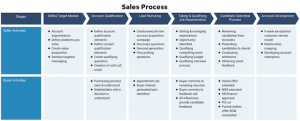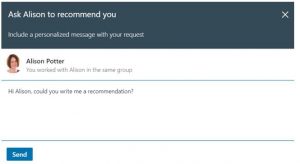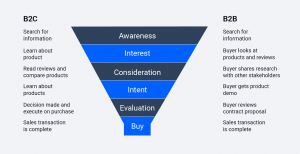 Businesses that “listen harder” to customers through social media monitoring will uncover valuable sales leads and market research, experts say.
Businesses that “listen harder” to customers through social media monitoring will uncover valuable sales leads and market research, experts say.
Companies can transform social media data into revenue by using the right social media listening tools, employing the right people to manage them, and integrating social media information into their sales pipeline.
Social media consultant and author Neal Schaffer recently noted that several years ago someone tweeted: “Shoretel or Avaya? Time for a new phone system soon.” Avaya was listening. It tweeted back, saying it had information and courteously requested a phone call. Thirteen days later, it closed a $ 250,000 deal.
While not all social media leads are so profitable, many organizations have found similar sales treasures and market insights by listening to consumers and customers on social media. Listening harder means monitoring more social media platforms using more and better search terms.
Companies need to be more proactive in their keywords when monitoring social media, Shaffer said in a recent webinar. That entails searching continuously for company name, product names, competitors’ names, competitors’ products, misspellings and other keywords that describe industry issues. Consumers may misspell your product names. People might not use your company handle on Twitter, said Schaffer. Companies should include those anomalies in their social media search terms.
How to Listen Well on Social Media
Searching for acronyms and nicknames of the company and its products, names of top executives can also generate more results for PR and marketing.
Employing Boolean search terms, or words like AND, OR, NOT and punctuation like parenthesis and quotes, can produce more meaningful data and eliminate irrelevant mentions. Despite the geeky-sounding name, writing Boolean search queries is not difficult. Mainstream search engines like Google and Bing and social media monitoring service such as CyberAlert enable Boolean searches.
CyberAlert also permits users to specify capitalization in the search terms, increasing accuracy. Most organizations can achieve greater than 95% clip accuracy with well-structured Boolean queries and advanced search technologies.
It’s important to search across the full range of social media platforms including blogs, message boards and forums. Some of the large social media platforms are relatively easy to search. Twitter is the easiest. Others, especially Facebook but also LinkedIn and Google+, are more difficult due to privacy filters. Subscribing to a social media monitoring service that conducts searches automatically each day removes the drudgery of monitoring social media and improves results.
The Importance of Proper Follow-Up
Actually doing the monitoring of social media the first step, but what companies do after they find the data is crucial, according to Schaffer. Once social media listening provides leads, the company’s challenge is to fit the lead into its traditional sales funnel.
While social media listening can increase sales by uncovering potential customers, the company’s sales staff must respond appropriately. Social media users may be “creeped out” by a company contacting them following their social media post. That’s why following proper business etiquette is essential. Offering information the consumer may find useful and avoiding an immediate hard sell are hallmarks of appropriate follow-ups.
Marketers can humanize their brands by engaging with others through their company pages. It’s usually best not to give prospective customers a hard sales pitch after they mention your company or product. Listen to the conversation and follow the people involved. If you share their posts, they’ll see the sharing in their notifications. “Tap someone on the shoulder and let them know you’re there,” Shaffer said.
Turn Complainers into Market Researchers
By listening harder, companies can also obtain valuable market research at a bargain price.
Haters and complainers are pervasive on social media and online comment boards. Social media complaints about businesses jumped 800% in the UK from January 2014 to May 2015, said Jay Baer, president of Convince & Convert, another webinar speaker. That was because complaining on social media is easier than calling. Refusing to answer online complaints is actually an answer. The answer is that you don’t care about your customers.
By embracing complainers, companies can keep customers, Baer said noting that a 5% increase in customer retention increases profits 25% to 85%.
The vast majority of dissatisfied customers don’t complain. Complainers are the canary in the coalmine. “Haters are not your problem. Ignoring them is,” he said.
Advice: Find every mention of your company in every channel, and consider customer complaints as free market research.
Baer cited Le Pain Quotidien as an example of how to listen to and respond to customers. The bakery and restaurant chain answers online complaints in public, with the standard apology and promise to resolve problems. It then responds privately to complainers, praising them as discerning customers. It sends a gift card and asks them to visit its stores and complete detailed questionnaires about their experiences. The strategy has transformed complainers into helpers and has produced over 100 secret shoppers giving feedback.
Bottom Line: If companies “listen harder,” social media monitoring can identify more sales leads, retain existing customers, and produce low-cost market research. The secret is to find the right listening tools, develop good search queries, and implement procedures and staff training to put the social media data to good use.
This article was originally published on the CyberAlert blog.
Digital & Social Articles on Business 2 Community(54)
Report Post





